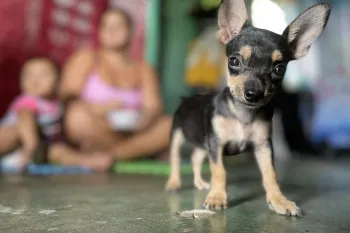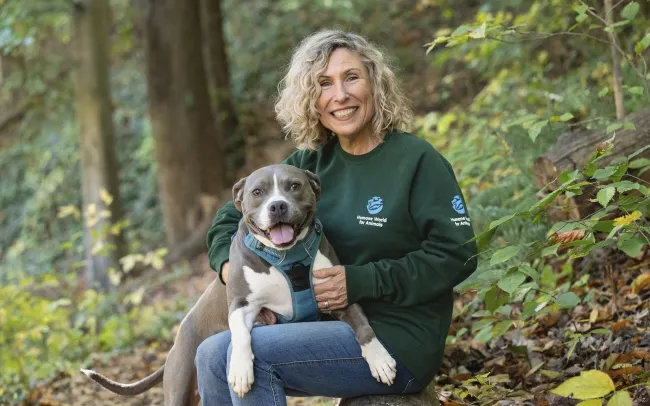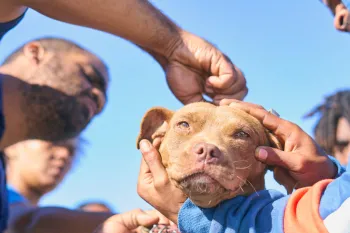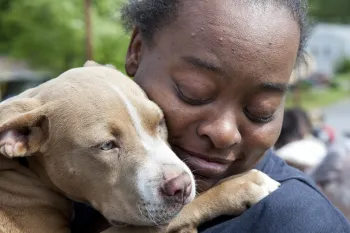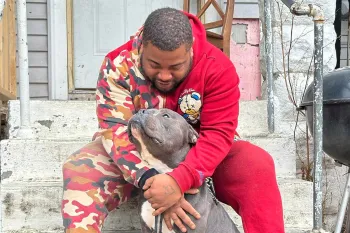At Humane World for Animals, we believe that the deep bond between people and animals is universal, and that the joy of connecting with a companion animal should not be a luxury reserved for only those who can afford the full cost of care. Dolly, the dog I had when I was a child, was one of the most important figures in my early life, and it’s heartbreaking to think that there are children who cannot experience the joy of caring for a pet because their families cannot afford the cost of veterinary care. Meanwhile, countless animals in animal shelters and rescues spend their lives waiting for a family to take them home, and many more in communities around the world live on the streets where they too are dependent on the kindness of human residents with limited resources. Pets living in poverty is a growing crisis and access to care has become one of the defining animal welfare issues of our time.
We believe that there are effective solutions even when it comes to the toughest problems facing animals in our society today, and we are working in the U.S. and all over the world to bridge the gap between resources for pet care and the caring residents and families who need them.
One striking approach to systemic challenges involving access to care has recently emerged in Tortuguero, Costa Rica, where the Animal-Friendly Communities pilot project, organized by Humane World for Animals Costa Rica and local partners, is helping residents of an isolated community access much-needed veterinary services and support for taking care of pets. These no-cost animal clinics in the Limón Province include another element that helps animals: raising awareness of how to make sure pets and the region’s astounding variety of wild animals do not negatively interact. It is truly a win-win-win for people and animals.
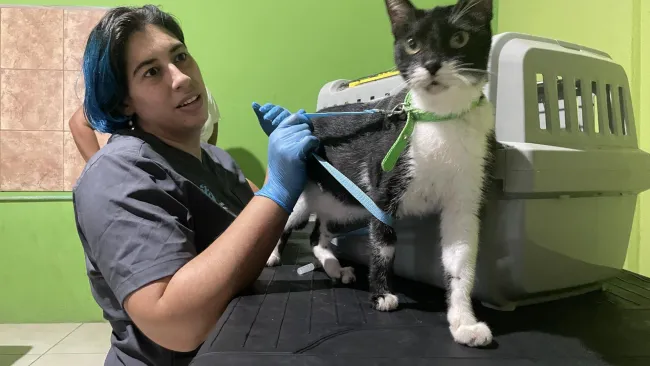
Sofía Herra/Humane World for Animals
Tortuguero Town is a small village nestled on a small sand bar that lies within Tortuguero National Park. The roughly 1,000 permanent residents of the village, which is accessible only by boat or plane, rely on tourism for their livelihoods. The beaches around Tortuguero provide key nesting sites for four species of sea turtle, and the national park is host to an extraordinary biodiversity of resident and migratory birds, jaguars, four species of monkeys, and insects of many kinds. The case for responsible approaches to mitigating potential negative encounters between domestic pets and wildlife could not be stronger than it is in this ecologically significant community.
We just held our third clinic there, in May, during which veterinary professionals provided 98 pets—including 80 dogs, 17 cats and one guinea pig—with a range of services at no cost to residents including general consultations, diagnostic testing, vaccinations, deworming and microchipping. Members of the community also received educational materials on responsible pet keeping, disease prevention and coexistence with wildlife—all grounded in the One Health approach, which recognizes the interconnectedness of human, animal and environmental health.
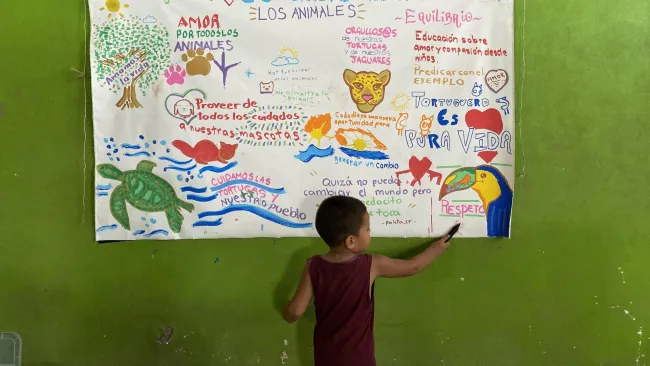
Andrea Induni/Humane World for Animals
These kinds of holistic approaches to animal welfare are immensely powerful because they view the well-being of animals as interrelated with the well-being of people. We’ve seen time and again that positive impacts reverberate through communities, preventing pets from ending up in already overstretched shelters and helping to keep families together with their animals. The success of these campaigns and other efforts throughout the year have been largely driven by the community's strong commitment and the dedication of our “Animal Ambassadors," local individuals committed to leading animal welfare initiatives and helping make them sustainable over time.
“These health campaigns are especially important given that access to veterinary care in Tortuguero is limited,” said Sofia Herra, manager of the Cruelty and Companion Animals program at Humane World for Animals Costa Rica. “Not only do these initiatives improve the lives of animals, but they also protect the area’s biodiversity by promoting responsible pet ownership and reducing negative interactions between pets and wildlife.”
One dog, Pulgosín, who visited the clinic had previously been diagnosed with a heartworm parasite commonly found in the Caribbean. With ongoing treatment and dedicated care from his owner, Pulgosín’s weight and mood have improved. And the treatment of diseases in companion animals means that such afflictions are less likely to spread to wildlife.
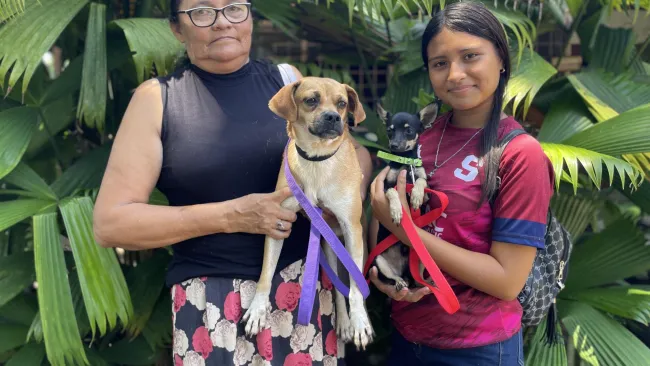
Sofía Herra/Humane World for Animals
“Pulgosín’s story is a great example of the great effect this initiative can have,” Herra added. “These clinics can have a positive impact on pets, wildlife and the community itself.”
I couldn’t agree more.
